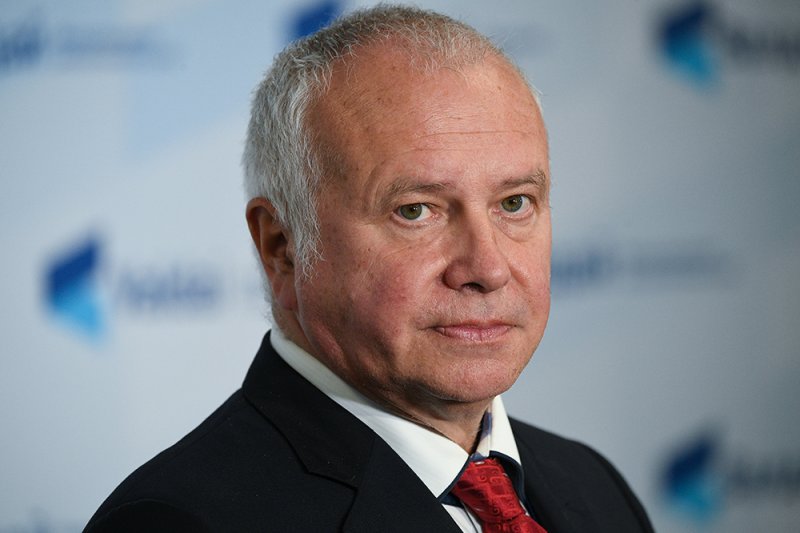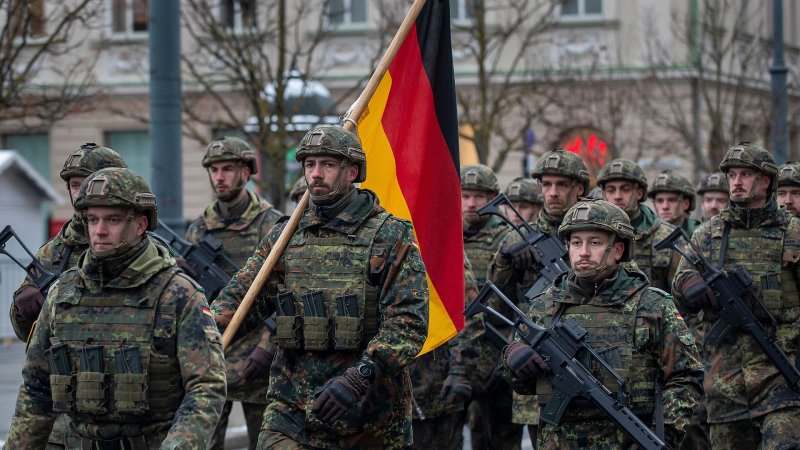By Tural Heybatov
Germany’s Chief of Defense, General Carsten Breuer, has issued a directive calling for the complete rearmament of the Bundeswehr with modern weapons and equipment by 2029. According to Reuters, which reviewed the document, the directive emphasizes the urgent need to enhance Germany’s defensive and offensive capabilities due to the threat of a potential Russian attack on NATO territory.
NATO has requested that Germany strengthen its air defense systems by at least fourfold—ranging from long-range platforms like Patriot to short-range systems. The directive also includes plans to improve the Bundeswehr’s capability to carry out precision strikes at depths exceeding 500 kilometers behind enemy lines.
Furthermore, Germany will boost its ammunition stockpiles, expand its electronic warfare capabilities, and develop a robust framework for both offensive and defensive operations in space.
Breuer and other NATO officials believe that by 2029, Russia could rebuild its armed forces to a level capable of launching an incursion into NATO territory. Recently, General Alfons Mais, the Inspector of the German Army, warned that Russian forces are rapidly regaining firepower and that “by no later than 2029, they will be capable of large-scale conventional aggression against NATO territory—but they may begin testing us even sooner.”
In light of these developments, News.Az reached out to German journalist, political scientist, historian, and former government advisor Alexander Rahr to ask: “Is Germany really preparing for war?”
 Maxim Blinov RIA Novosti
Maxim Blinov RIA Novosti
Rahr confirmed that under the leadership of Defense Minister Boris Pistorius, the German Ministry of Defense is indeed planning for a possible war with Russia within the next four years. “However, the government has yet to speak openly about such plans and is still hoping for a peaceful resolution to the war in Ukraine,” Rahr noted. “But with every new territory Russia captures in Ukraine, the ruling circles in Germany are growing more convinced that they must prevent—by all possible means—what they see as Moscow’s attempt to restore the lost power of the Soviet Union.”
As reported by Euractiv, German Chancellor Friedrich Merz has vowed to transform the Bundeswehr into the strongest army in Europe. He pledged that the armed forces will be provided with all necessary financial resources to “become the most powerful military in Europe in the conventional sense.” According to reports, the coalition government has already approved budget reforms that will exempt a portion of military spending from the country’s so-called “debt brake”—a rule that bars the government from spending more than it earns.
Germany is accelerating preparations across all fronts. The pace suggests that the perceived threat of war with Russia is rapidly evolving from a possibility into a looming reality. Recently, discussions have begun in Berlin about the potential reinstatement of mandatory military service. This would only happen if the current voluntary enlistment system proves insufficient in the face of the growing “Russian threat.” In an interview with Frankfurter Allgemeine Sonntagszeitung, Defense Minister Pistorius said: “If the time comes when we have more positions than volunteer applicants, then a decision could be made to introduce compulsory service. That is the contingency plan.”
A new conscription bill is already being drafted. Surprise provisions may await not only new recruits but also reservists. Conscription in Germany was abolished in 2011. However, few Germans are eager to serve voluntarily, and the ongoing war in Ukraine, according to military officials, has only worsened the Bundeswehr’s personnel shortfalls.
Commenting to Ukrainian media, military-political analyst Oleksandr Kovalenko suggested that Russia may indeed be capable of capturing territory in several NATO countries—and possibly simultaneously. According to Kovalenko, countries most at risk include the Baltic states, Poland, the Scandinavian countries, Sweden, and Finland.
Notably, Germany was not on Kovalenko’s list. Germany’s accelerated preparations for a potential military confrontation with Russia reflect not only growing concern within NATO but also a fundamental shift in Berlin’s strategic posture. For decades, Germany relied on diplomacy, multilateralism, and a restrained defense policy shaped by the legacy of World War II. Now, amid an increasingly volatile European security landscape, those assumptions are being rapidly reassessed.
The rearmament of the Bundeswehr, the debate over reintroducing conscription, and the political will to bypass budgetary constraints all point to a new era in German defense policy—one where war is no longer seen as a distant or implausible scenario, but as a contingency that must be planned for in detail.
This transformation does not necessarily mean that war is inevitable. But it sends a powerful message: Germany, long seen as Europe’s economic powerhouse and diplomatic broker, is now positioning itself as a central military actor on the continent. Whether this shift will serve as a genuine deterrent or further fuel the security dilemma between NATO and Russia remains one of the most critical questions for Europe’s future.
